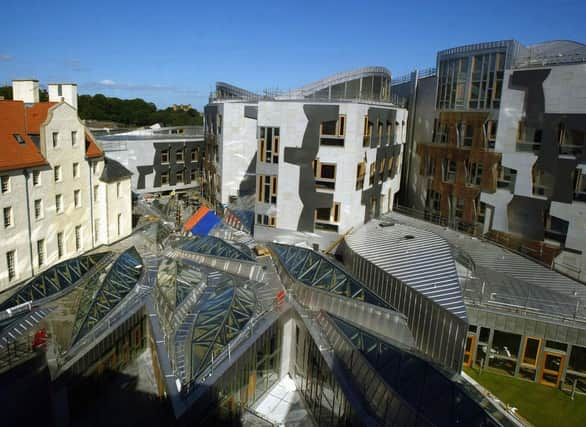Devolution: meaning of the term, Scotland’s devolved powers explained - and why Boris Johnson allegedly called it ‘a disaster’


Boris Johnson has been criticised by Scottish Conservatives and Scottish nationalists after he allegedly described devolution as “a disaster north of the border”.
The Prime Minister is said to have told Conservative MPs on Monday that devolution had been “Tony Blair’s biggest mistake”.
Advertisement
Hide AdAdvertisement
Hide AdThe comments, originally reported by The Sun, have not been denied by Number 10.
Scottish Conservatives leader Douglas reacted to the comments saying “devolution has not been a disaster”.
In response to the comments, which also included Mr Johnson saying he could not “see a case” for handing down more powers, Scotland’s First Minister suggested independence was the best answer for the devolved administration.
Ms Sturgeon tweeted: “Worth bookmarking these PM comments for the next time Tories say they’re not a threat to the powers of the Scottish Parliament – or, even more incredibly, that they support devolving more powers.
“The only way to protect & strengthen @ScotParl is with independence.”
What is devolution?
Devolution is the transfer of powers from a central government to a local or regional administration.
In the case of Scotland this power is transferred from the London-based Westminster government to the Edinburgh-based Holyrood parliament.
Powers allocated to Holyrood are known as devolved powers, while reserved powers are those which the UK government can still pass laws on.
When were powers devolved to Scotland?
Advertisement
Hide AdAdvertisement
Hide AdIn 1997, a referendum was held in Scotland asking the people if they agreed or disagreed that the country should have its own parliament with devolved powers, and whether the country should or shouldn’t have tax-varying powers.
Scotland voted overwhelmingly in favour of forming a new parliament with 74.3% of Scots voting ‘Agree’, while 63.5% voted in favour of tax-varying powers.
A year later the Scotland Act 1998 established a Scottish Parliament which held powers to make its own laws, with the Scottish Parliament officially opened in 1999.
Subsequent acts, including the Scotland Act 2012 and Scotland Act 2016, gave Holyrood a greater range of powers.
What are Scotland’s devolved powers?
Currently Holyrood is able to create laws on the following:
- Agriculture, forestry and fisheries
- Education and training
- Environment
- Health and social services
- Housing
- Law and order
- Local government
- Sport and the arts
- Tourism and economic development
- Many aspects of transport
What are Scotland’s reserved powers?
Currently Westminster is able to pass laws which have an impact UK-wide on the following:
- Benefits and social security
- Immigration
- Defence
- Foreign policy
- Employment
- Broadcasting
- Trade and industry
- Nuclear energy, oil, coal, gas and electricity
- Consumer rights
- Data protection
- The Constitution
Will there be another Independence Referendum?
The SNP have set the wheels in motion for another independence referendum, passing a motion to endorse another vote on January 29, 2020.
The push for a referendum has been halted by the coronavirus pandemic, though Nicola Sturgeon announced in September that the Holyrood government was working on a new referendum bill.
Polls suggest that support for independence is growing and the SNP could argue they have a mandate for a vote, should voters side with them at the local elections in 2021.
Advertisement
Hide AdAdvertisement
Hide AdOpponents to the independence movement are quick to point out that the Yes movement called the 2014 vote a "once in a generation opportunity”.
One opponent is Prime Minister Boris Johnson.
has been unwavering in his dismissal of any imminent potential independence referendum.
Despite being warned by Sturgeon that "Scotland can't be held against its own will", the newly elected Prime Minister has said that he will not allow a second independence referendum under any circumstances while he is Number 10 Downing Street's resident.